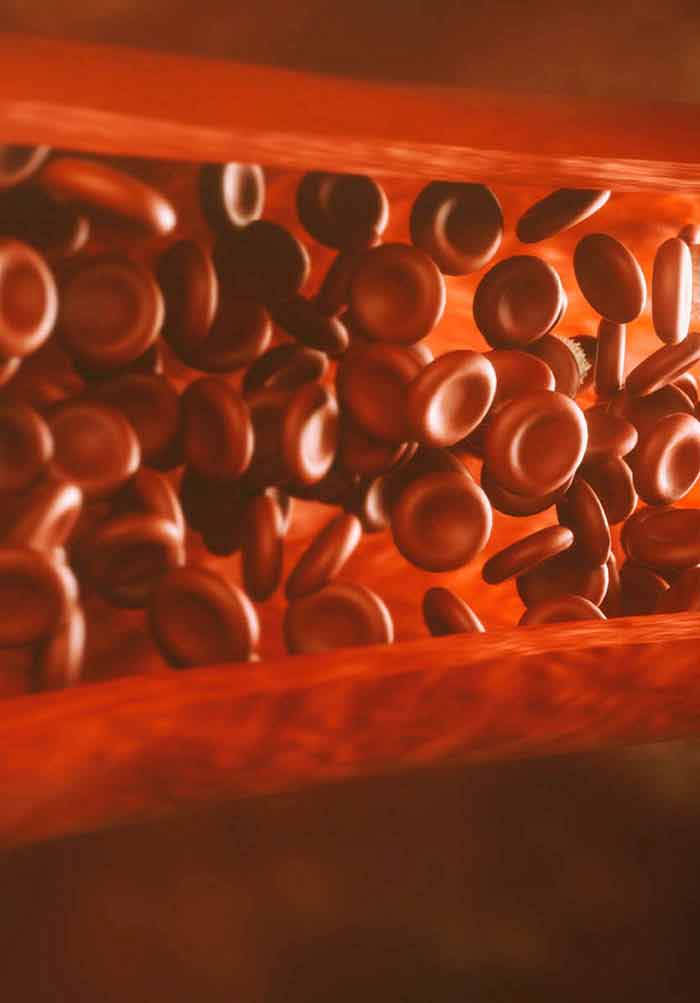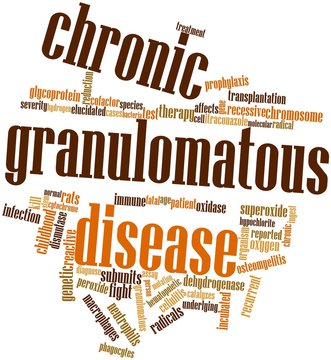Granulomatous Disease Causes, Symptoms, and Treatment
Exploring the Formation and Impact of Granulomas in Various Types of Granulomatous Disease
Granulomatous disease
HealthNews: Granulomatous disease refers to a group of conditions characterized by the formation of granulomas, which are clusters of immune cells that develop in response to an infectious agent, a foreign substance, or a self-antigen. Granulomas are composed of macrophages, T cells, and other immune cells that have been activated to contain or eliminate the offending agent.
There are several types of granulomatous disease, including sarcoidosis, tuberculosis, leprosy, and certain autoimmune disorders. In some cases, granulomas can cause tissue damage and lead to organ dysfunction. Symptoms of granulomatous disease may include cough, fever, night sweats, fatigue, weight loss, skin rash, joint pain, and respiratory problems, depending on the specific condition.
According to research, the exact cause of granulomatous disease can vary depending on the type of condition. In some cases, granulomatous disease may be caused by an infection from bacteria, viruses, fungi, or parasites. In other cases, the immune system may mistakenly attack normal tissues in the body, leading to the formation of granulomas. Additionally, exposure to certain environmental factors, such as dust or chemicals, may also contribute to the development of granulomatous disease in some people.
Some studies have also suggested that genetic factors may play a role in the development of granulomatous disease. For example, individuals with a family history of sarcoidosis, a type of granulomatous disease, may have an increased risk of developing the condition themselves.
While the specific causes of granulomatous disease may vary, research has shown that effective management of the condition typically involves a combination of medical treatments, lifestyle modifications, and ongoing monitoring by healthcare professionals.
Causes granulomatous disease
The causes of granulomatous disease can vary depending on the specific type of condition. In some cases, granulomatous disease may be caused by an infection from bacteria, viruses, fungi, or parasites. For example, tuberculosis, leprosy, and some fungal infections can cause granulomas to form in affected tissues.
In other cases, granulomatous disease may be caused by an abnormal immune response, where the immune system mistakenly attacks normal tissues in the body and causes inflammation. This is seen in conditions such as sarcoidosis and Crohn's disease.
Certain environmental factors, such as exposure to certain chemicals or dust, have also been associated with the development of granulomatous disease in some people. Additionally, genetic factors may also play a role in the development of some types of granulomatous disease.
The exact causes of granulomatous disease are not completely understood and may vary depending on the individual case. Treatment typically involves a combination of medical therapies, lifestyle modifications, and close monitoring by healthcare professionals.
 |
| The symptoms of granulomatous disease, Healthnews // Intech Open |
Symptoms granulomatous disease
The symptoms of granulomatous disease can vary depending on the type of condition and the organs or tissues affected. However, some common symptoms that may be present in many types of granulomatous disease include:
- Fever
- Fatigue
- Weight loss
- Night sweats
- Joint pain
- Skin rash
- Respiratory problems, such as cough, shortness of breath, and chest pain
- Enlarged lymph nodes
- Abdominal pain
- Diarrhea
- Vision problems
In some cases, granulomatous disease may be asymptomatic and may only be detected incidentally during routine medical examinations or imaging tests.
It is important to note that these symptoms are non-specific and can be present in many other conditions, which is why it's essential to see a healthcare professional for proper diagnosis and treatment. A thorough medical evaluation and diagnostic testing may be necessary to determine the underlying cause of the symptoms.
R E A D :
- Unlocking the Mystery of Nystagmus-A Window into Vision and Balance
- Uncovering Pot Syndrome Symptoms, Causes, Treatment, and Prevention
- Overcoming Elimination Disorders: Tips and Techniques That Work
- Gluten Intolerance: Signs, Causes, and Solutions
- Unveiling the Mystery of Kawasaki Disease: A Rare and Serious Illnes
Treatment granulomatous disease
The treatment of granulomatous disease depends on the underlying cause, severity of the condition, and the organs or tissues involved. Some common methods of treatment for granulomatous disease include:
- Medications: Antibiotics, antifungal medications, and antiviral drugs may be prescribed to treat infectious causes of granulomatous disease. In addition, immunosuppressive drugs, such as corticosteroids, may be used to suppress the immune system and reduce inflammation in cases where the immune system is mistakenly attacking normal tissues.
- Surgery: In some cases, surgery may be necessary to remove granulomas that are causing organ dysfunction or other complications.
- Lifestyle modifications: Making certain lifestyle modifications, such as avoiding exposure to environmental triggers, quitting smoking, and maintaining a healthy diet and exercise routine, may help to manage symptoms of granulomatous disease.
- Ongoing monitoring: Regular monitoring by healthcare professionals is essential for individuals with granulomatous disease to ensure that the condition is properly managed and to monitor for any potential complications or side effects from treatment.
- Biologic agents: Biologic agents, such as tumor necrosis factor (TNF) inhibitors, may be used to treat certain types of granulomatous disease, such as Crohn's disease and rheumatoid arthritis. These medications target specific molecules involved in the immune response and can help to reduce inflammation and prevent the formation of granulomas.
- Pulmonary rehabilitation: Pulmonary rehabilitation may be recommended for individuals with granulomatous disease affecting the lungs, such as sarcoidosis. This may involve breathing exercises, physical activity, and other therapies to improve lung function and manage respiratory symptoms.
- Supportive care: In addition to medical treatments, individuals with granulomatous disease may benefit from supportive care, such as nutritional support, psychological support, and palliative care for advanced cases.
The specific treatment plan for granulomatous disease will depend on the individual case and should be determined by a healthcare professional. Treatment may involve a combination of the methods listed above and may need to be adjusted over time to ensure the most effective management of the condition.
>> Granulomatous disease is a group of conditions that are characterized by the formation of granulomas, which are small nodules of immune cells that form in tissues throughout the body. The causes of granulomatous disease are complex and can vary depending on the specific type of condition. In some cases, infections can lead to the formation of granulomas, while in other cases, an abnormal immune response may be responsible.
The symptoms of granulomatous disease can vary widely depending on the organs or tissues affected, and treatment may involve a combination of medications, surgery, lifestyle modifications, and ongoing monitoring. While the condition may not be curable, effective management and monitoring can help to improve symptoms, prevent complications, and improve quality of life for individuals with granulomatous disease.


No comments:
Post a Comment